Sleep well to wake fine – A few solutions to sleeping disorders in kids
Sleeping disorders in kids trouble parents more than kids. When your kid wakes up at late night and cries for no reason, how can you sleep? Lack of proper sleep disturbs the balance of a normal person, and the next day he/she may reach office late and feel sleepy too. He may not able to concentrate to work properly, and the whole day may go this way. There are many reasons for such issues and solutions too. When you fix those problems and disorders in kids, it gives you a pleasant and energetic day too.
If your baby doesn’t sleep properly at night, fear or cold may not be the only reason. Hyper activity and several health issues can deprive him of sleep. Through this column, let us find a few problems which affect his sleep and suitable solutions as well.

Unnecessary fear
Do your kids wake late night and cry for no reason, or after seeing some scary dreams? Do you look at a single point fixed and sit scared for a while? His pulse may increase; he may take deep breaths and even sweat too. These are the symptoms of sleeping disorders due to fear.
1. Nightmares and night terror can wake your kid from deep sleep. Fear to darkness or some scary incident he witnessed could be the reason. Child may not remember night terror. But kids may be able to recollect nightmares.
2. Fiery dreams can trouble kids and their parents too. He may wake up with cries and seen restless. He may stare, and looks feared. Some kids may wake from sleep and try aloud. Even if he opens his eyes, the dream might not have left him, that’s the reason. You may need to shake him to for a few times to wake him from dream and sleep.
3. Parents can closely observe and find if such scary dreams trouble the kids. Iris moves rapidly inside the closed eye lids while he is sleeping. He may cry or utter words like ‘No’ too.
4. Scaring thoughts and fears disturb a person/kid just before he goes to deep sleep stage, a time within 4 hours he goes to sleep. In most cases, he sleeps automatically after he wakes up from dream.
5. You can tell him bedtime stories or fill his mind with positive thoughts during his sleeping time, just before he goes to bed. You can also give a clear picture of beautiful sights like a beautiful garden, a pond filled with lotus etc. If kid sleeps with such beautiful thoughts in mind, fiery dreams won’t trouble him too much.
6. If your kid is scared of something, parents should find it and remove those fear thoughts from mind. Otherwise such thoughts can disturb him in sleep. If he is feared of water or oceans, take him to beach once in a while, and take him to play with waves. If he is disturbed with some scary sights or accidents he witnessed, remove those memories by filling his mind with pleasant ones. Good natural scenes, stories etc can do that job easily.
7. If your kid wakes from sleep seeing some scary dream, instead of asking about it in detail, divert his thoughts to something else. You can take him to bathroom before he goes to sleep again. When the kid does something waken from sleep, he forgets the previous dreams and fear to great extent.
8. Such problems are very common in kids of age group 3-10. If such dreams frequently disturb your kid, you should visit a doctor. Counseling can also help a lot.
Mobiles which deprive you of sleep
A kid may sit till late night playing games. When he sits for a long time, sleep also slowly disappears. Even while he is put to sleep, his mind and brain are still in play mode. As he was fully engaged in an interesting activity for a while, it’s not easy to relax or switch the mind to another task. Keep in mind this important fact always.

1. The light emitted by screens of television, monitors and mobile screen reduces the production of melatonin, a hormone which stimulates brain to sleep.
2. Never imagine that your kid is enjoying while playing digital game or watching cartoon. The games have him a lot of mental pressure and stress also. So the tensions associated with it, fear of loss of a game etc can affect his sleep adversely.
3. Digital games and television should be switched off one hour before he goes to sleep. During day time too, keep a control on their usage.
4. Never place electronic devices in your kid’s room. Teach him since early age that bedroom is only for sleep.
Breathing problems
If your kid has cold and similar problems, he may sleep with open mouth. He may not be able to breathe properly; that’s the reason. If they have breathing problems, it can affect their sleep. Kids suffering from asthma and similar issues also face same problem.
1. Sleep with open mouth, snoring, stopping the intake of air in between, coughing, changing head position several times while sleeping etc are some of the common symptoms.
2. Obstacles in throat can affect the process of breathing and results in sleep loss. This condition is obstructive sleep apnea.
3. Kids with swellings in Tonsils and adenoid gland behind nose may have this sleeping disorder, and also in those with allergic problems like Allergic Rhinitis.
4. Find the reason behind sleep apnea and treat it properly. Sleep will also return back.
5. Bathing in cold water in late nights and cold food, using fan in high speed can also increase allergic conditions.
6. During night time, whole body muscles relax. So, muscles of nasal cavity also relax during this time and affect the breath of air. Upper airway resistance syndrome is most common in kids with obesity.
7. You can observe the sleeping habits of kids during day time to know his breathing styles. When he goes to sleep, he may take deep breaths, and it slows down to a rhythm when he achieves a sound sleep. If he has breathing issues, he may stop in between before breathing again.
8. Though these problems affect kids of 3-10 age group, it’s most common in 6-10 years group.
9. If your kid faces breathing problems regularly at nights or snores in sleep, you should consult a doctor. Such problems may block the supply of oxygen to brain, giving other issues too.
Other problems
Some kids may walk in sleep (somnambulism). Some may utter words in deep sleep (though without any clear meaning). Though they give answer to our questions, it’s not done with a conscious mind. Restless sleep is the reason behind it. When kids reach the next phase of growth, he may forget all these habits.

1. Even a small fever can give him discomfort and affect his sleep. If he wakes from sleep and cry or sleeps restless, they could be the symptoms of pus in ears or urine.
2. Kids with Attention deficit hyperactive disorder (ADHD) also show sleeping disorders. Such kids have lack of concentration issues. Concentration and sleep are controlled by the same part of human brain.
3. Even if he doesn’t get sufficient sleep for one or two days, it’s not necessary that he sleeps at daytime to compensate it. Instead he may express it as sort of some mischiefs, accompanied by anger and stubbornness too.
4. Early tuition or studies at late nights can affect your kid’s sleeping habits. If your kid is deprived of sleep it affects his brain function and concentration and adversely affects his studies too.
5. An infant of 2 months old sleeps for 10-19 hours. A kid of 2 months – 1 year age sleeps for 12-14 hours. A kid of 3 years age sleeps for 11-13 hours, and kids falling to the age group 3-10 should sleep for 9-10 hours.
Digestive problems
Digestive problems due to heavy meals or intake of allergic substances can also deprive your child of sleep. Mild dinner is best for all age groups, not just kids.

1. A kid may show low interest to sleep or he may change his posture severe times while sleeping. It may due to digestive problems.
2. Food with extra calories can deprive him of sleep. Burger, meat products, fried items, bakery items etc could be the reason. Fill snack boxes of your kids with fruits instead of snacks, to be provided during snack breaks at school.
3. Give them food at least 1 hour before sleeping time. Never give him food just before he goes to sleep.
4. Avoid oily and excess sour/chilli foods as much as possible. Avoid food items for supper which can give gastric troubles. They can give stomach pain, burning chest etc.
5. Avoid the excess use of spices and oil for supper. Make it light. Also avoid coffee and tea at late nights.
6. Passive feeding can cause problems in infants. Though a kid is to be provided milk once in two hours only, a mother may give it whenever he cries. It may result in burping.
7. Whenever you feed infants, lay him on your shoulders and gently pat him to release gas. Otherwise it gives him discomforts and stomach pain. Colic is quite common in infants below 5 months old, and he cries continuously mostly due to gas troubles and related issues.
8. A sleeping disorder called Restless Legs Syndrome (RLS) is seen in kids deficient of iron or calcium. He may move his legs in deep sleep, and RLS is a disorder of the part of the nervous system that causes an urge to move the legs.
9. Kids with Junk food habits and sleeping disorders have more chances for heart diseases, obesity etc.
The need to sleep
Sleep mainly passes through two phases – Rapid Eye Movement Sleep (REM) and Non- Rapid Eye Movement Sleep (NREM). During the first stage of sleep, brain categorizes all the visuals we see during the daytime, and keeps them as record. Dreams appear during this phase. Body relaxes completely during the second phase of sleep. Anti-oxidants purify blood during this phase. Your sleep completes a full cycle by combining these two phases.
1. If a student fails to achieve the first stage of sleep properly, he may not memorize whatever he studies, and store in brain.
2. Kids need more refreshment than adults. So they need rest and a sound sleep too.
3. Kids with sleeping order can face issues such as lack of concentration, disorders in behaviour, excess tiredness, learning problems etc.
Image source: Pixabay
Also read a few more articles related to child diseases & treatments and also child care. Click on the images in the gallery to read


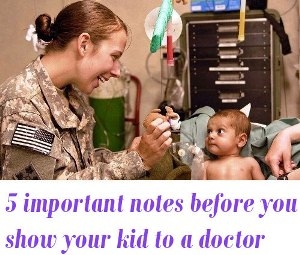


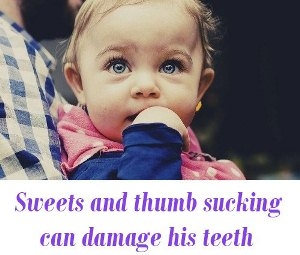
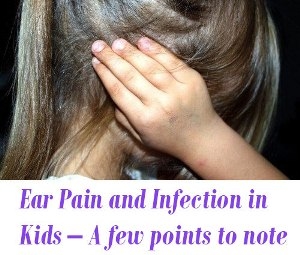

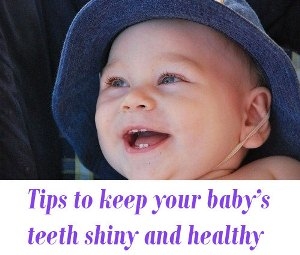


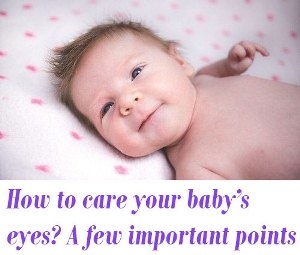














Recent Comments